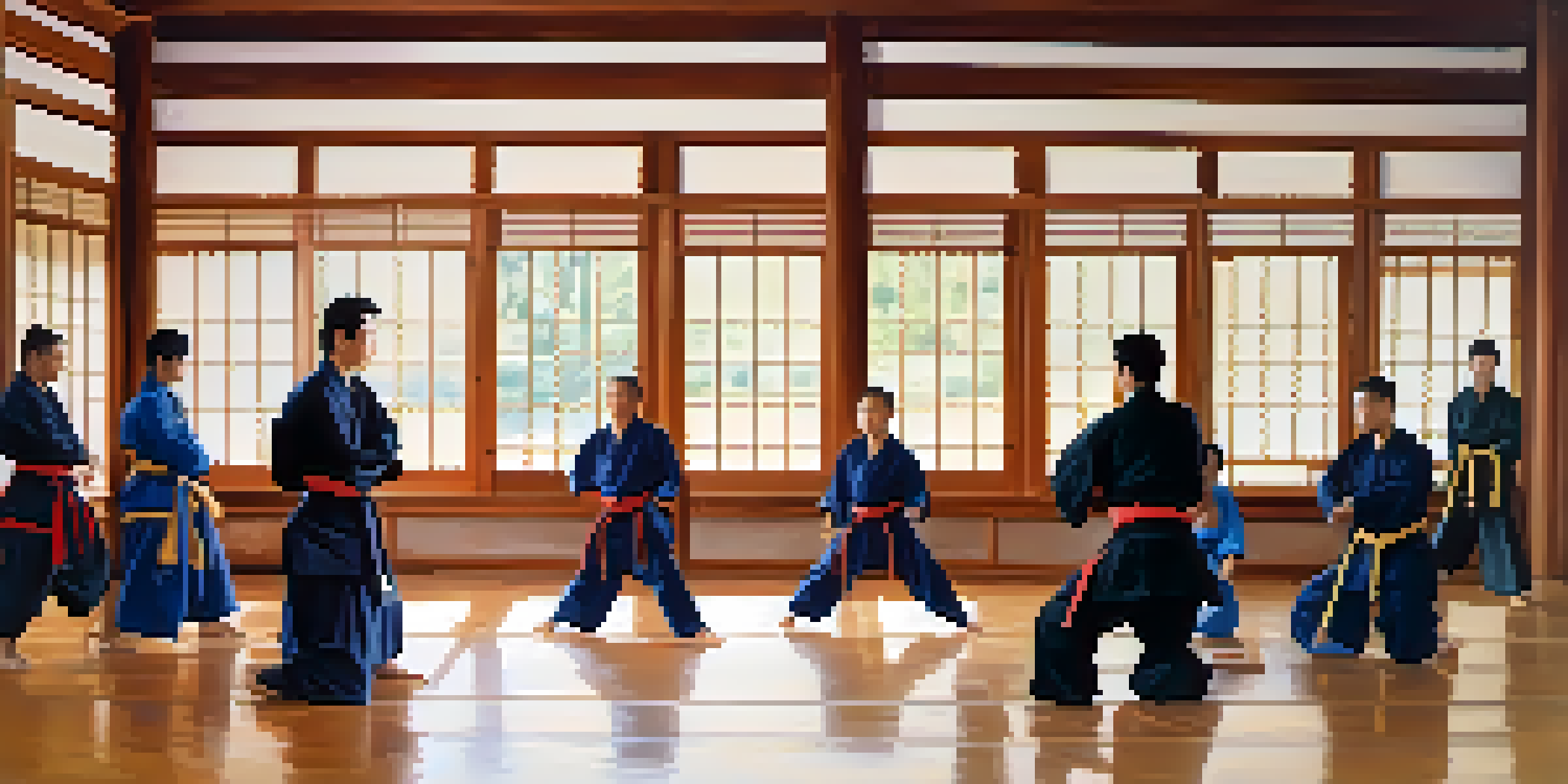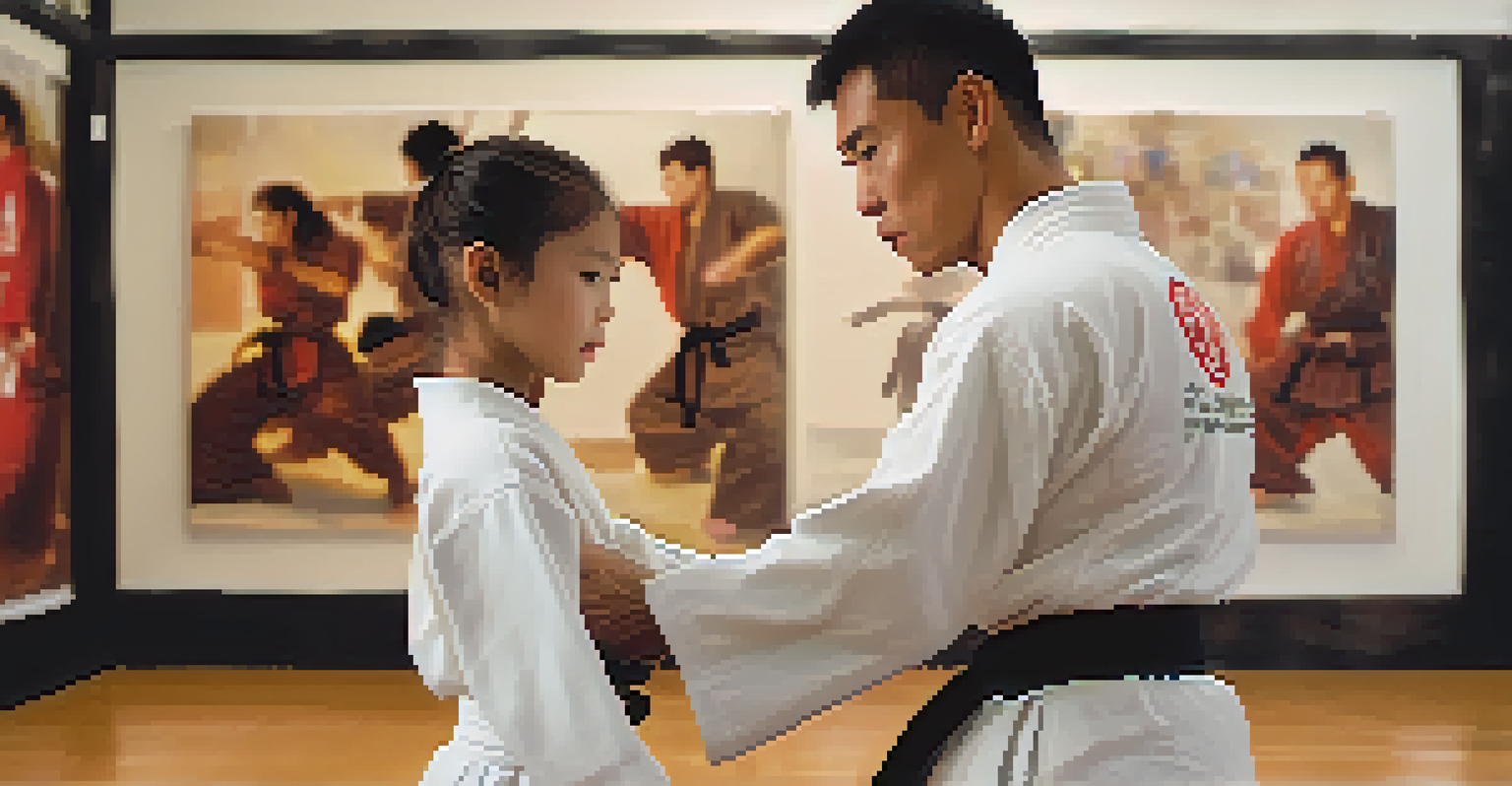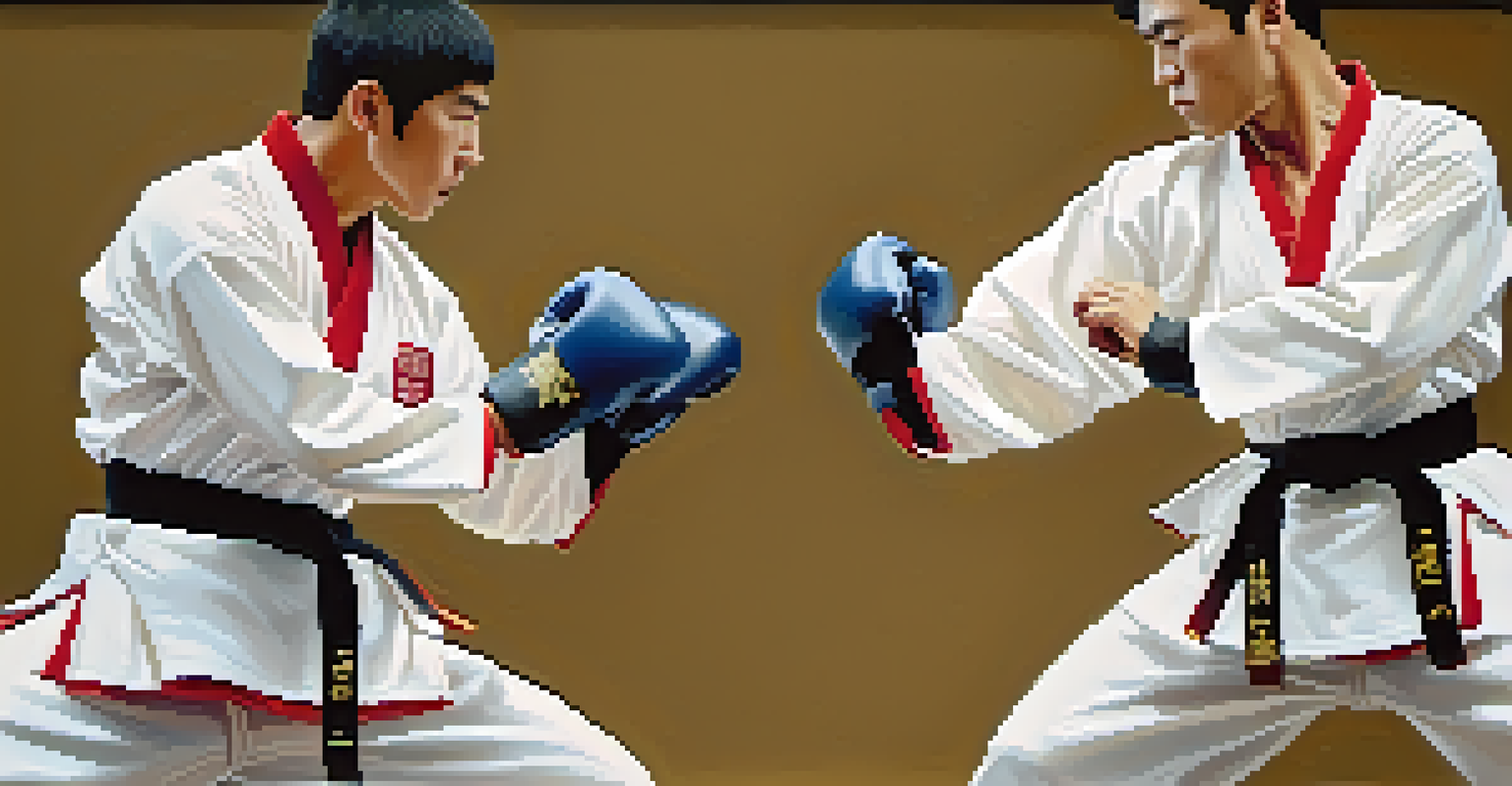How Martial Arts Promote Empathy in Conflict Situations

Understanding Conflict Through Martial Arts Principles
Martial arts teach us that conflict is not just about physical confrontation; it's also about understanding the other person's perspective. When practicing, students learn to read their opponent's body language and intentions, which fosters a deeper sense of awareness. This fundamental skill is essential in resolving conflicts, as it encourages practitioners to step back and evaluate situations from multiple angles.
The ultimate aim of martial arts is not having to use them.
By focusing on techniques that rely on timing and distance, martial artists develop patience and strategic thinking. These skills translate well into real-life conflict situations, where rushing in with aggression can often lead to misunderstandings. Instead, martial artists are trained to remain calm, assessing the situation before reacting, which is a vital aspect of empathy.
Ultimately, martial arts instill a philosophy of respect, not just for oneself but for others as well. This respect is crucial in conflict resolution, as it encourages individuals to approach disagreements with a mindset geared toward understanding rather than dominating.
Building Self-Discipline and Emotional Control
One of the core tenets of martial arts is self-discipline, which is essential for personal growth. Practitioners learn to control their emotions, especially in high-pressure situations. This emotional regulation allows them to respond thoughtfully rather than react impulsively during conflicts, promoting a more empathetic approach.

For instance, a martial artist who has trained for years is less likely to lash out in anger when faced with a disagreement. Instead, they can channel their energy into finding a solution, making them more effective communicators. This controlled response is a key part of developing empathy, as it enables individuals to listen and engage more meaningfully.
Empathy through Martial Arts Training
Practitioners learn to understand and appreciate others' perspectives, fostering empathy essential for conflict resolution.
Furthermore, self-discipline fosters resilience, allowing martial artists to bounce back from setbacks. This resilience builds empathy because it helps them understand the struggles of others, recognizing that everyone faces challenges and conflicts in their lives.
The Role of Respect in Martial Arts Training
Respect is a cornerstone of martial arts training, instilled in students from the very first lesson. Practitioners are taught to respect their instructors, peers, and even their opponents, fostering an environment where empathy can flourish. This respect extends beyond the dojo, influencing how they interact with others in daily life.
In the midst of chaos, there is also opportunity.
When individuals approach conflicts with respect, they are more likely to listen actively and consider the other person's feelings. This shifts the focus from winning an argument to understanding the other party's perspective, promoting a more empathetic dialogue. For instance, a respectful discussion in a heated moment can lead to significant breakthroughs in resolving disagreements.
Moreover, this culture of respect encourages individuals to reflect on their actions and the impact they have on others. It creates a ripple effect, where empathy becomes a shared value within the martial arts community and beyond, ultimately promoting a more harmonious society.
Practicing Empathy Through Sparring and Partner Drills
Sparring in martial arts is not just about competition; it's an opportunity to practice empathy in action. When paired with a partner, practitioners must tune into their opponent’s movements and intentions, which requires a level of empathy to ensure safety and fairness. This interaction helps them understand the physical and emotional aspects of conflict.
During partner drills, students learn to anticipate each other's responses, which mirrors real-life conflict resolution scenarios. By understanding how their actions affect their partner, they cultivate a sense of responsibility and awareness. This awareness extends beyond the dojo, enabling them to approach conflicts with greater sensitivity in their personal lives.
Self-Discipline Enhances Emotional Control
Martial arts training cultivates self-discipline, enabling individuals to manage their emotions and respond thoughtfully in conflicts.
Furthermore, these sparring sessions often involve a level of vulnerability, as both partners are pushing each other to improve. This shared experience creates a bond that fosters empathy, as they learn to appreciate each other's strengths and struggles, reinforcing the idea that conflict can be navigated collaboratively.
Mindfulness and Its Connection to Empathy
Many martial arts practices incorporate mindfulness techniques, which are essential for developing empathy. Mindfulness encourages practitioners to be present in the moment, allowing them to observe their thoughts and feelings without judgment. This heightened self-awareness makes it easier to understand others' emotions during conflicts.
For example, when faced with a disagreement, a mindful martial artist can pause and reflect on their feelings before reacting. This moment of reflection can prevent misunderstandings and help them approach the situation with compassion. As they become more attuned to their own emotional responses, they can better empathize with others.
Incorporating mindfulness into training also enables martial artists to develop a sense of calm and clarity in high-stress situations. This clarity allows for more thoughtful responses during conflicts, paving the way for constructive dialogue and resolution.
Community and Fellowship in Martial Arts
Martial arts often emphasize community, creating a supportive environment that nurtures empathy. As practitioners train together, they share experiences and challenges, building camaraderie that goes beyond physical training. This sense of belonging fosters an understanding of the diverse backgrounds and perspectives within the group.
When individuals feel connected to a community, they are more likely to empathize with each other's struggles. For instance, a shared experience in training can lead to a deeper appreciation for the efforts and challenges faced by fellow practitioners. This understanding translates into a more empathetic approach during conflicts, both within the dojo and in everyday life.
Community Builds Understanding and Support
The sense of community in martial arts promotes shared experiences, enhancing empathy and creating a supportive environment.
Moreover, many martial arts schools promote outreach and service, encouraging students to give back to the community. This commitment to social responsibility reinforces the idea that empathy extends beyond personal interactions, inspiring practitioners to consider the broader impact of their actions on society.
Real-Life Applications of Empathy Learned in Martial Arts
The skills gained from martial arts training are not confined to the dojo; they have real-life applications that can enhance empathy in various situations. Practitioners often find that the ability to stay calm and collected during conflicts helps them navigate challenges in personal and professional settings. This translates to more effective communication and problem-solving.
For instance, someone trained in martial arts may handle workplace disagreements with a level of grace and understanding that others might struggle with. By applying the principles of respect, self-control, and empathy learned in training, they can foster a more collaborative environment. This ability to empathize can lead to stronger relationships and a more positive atmosphere overall.

Additionally, martial arts can help individuals advocate for themselves and others in conflict situations. Equipped with the skills of emotional regulation and understanding, practitioners can stand up for their beliefs while still respecting differing viewpoints, creating a healthier dialogue.